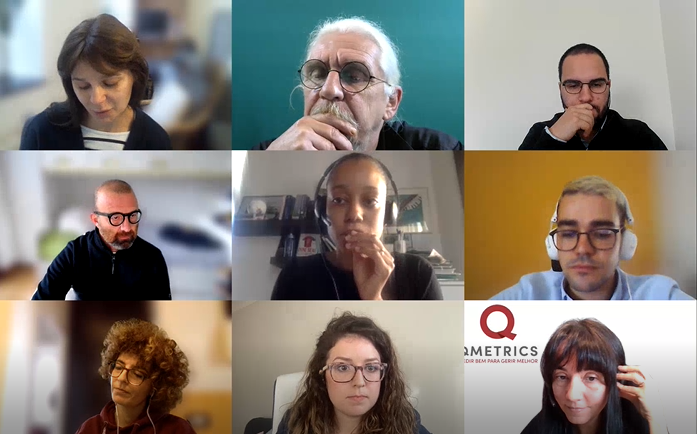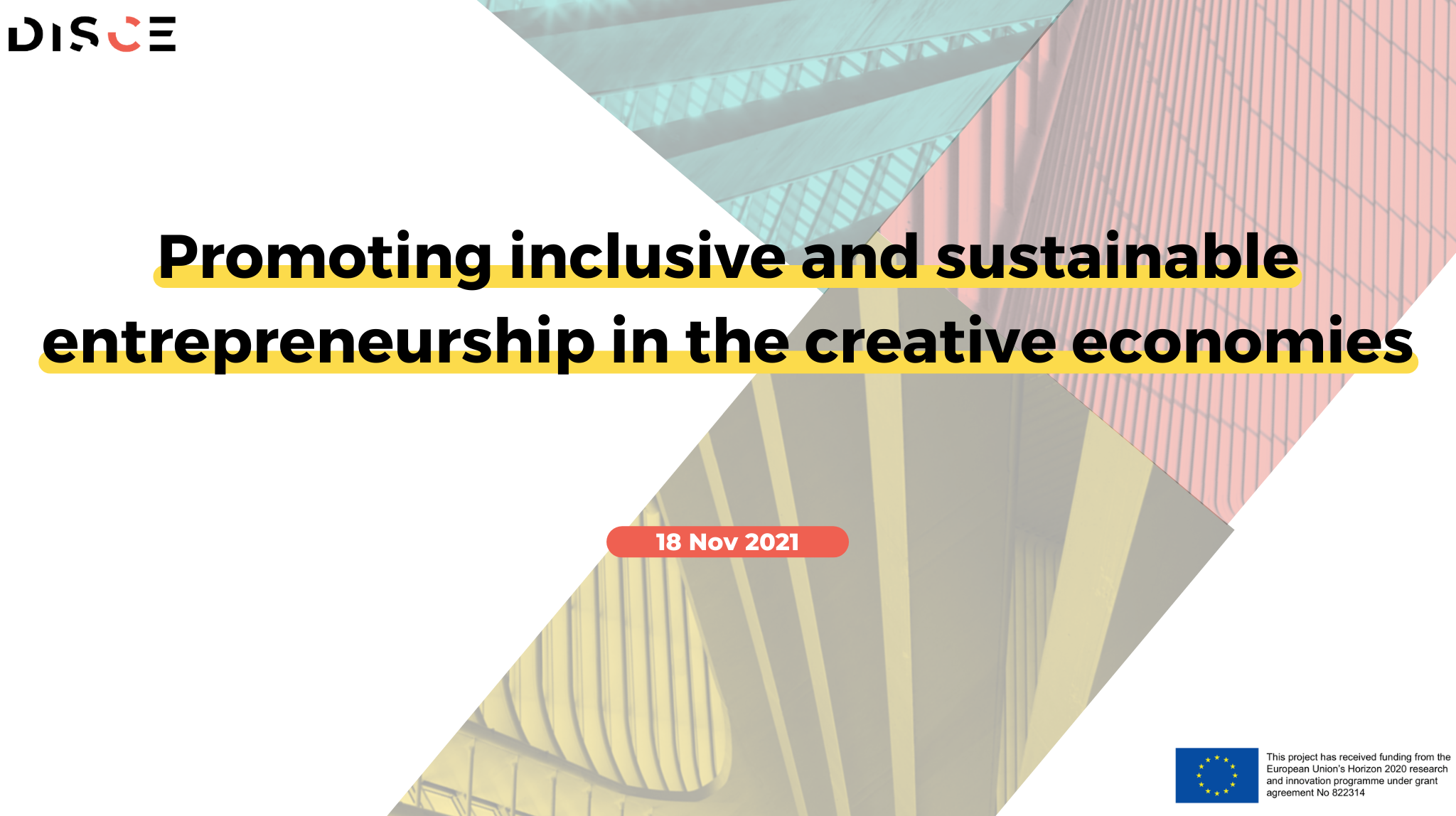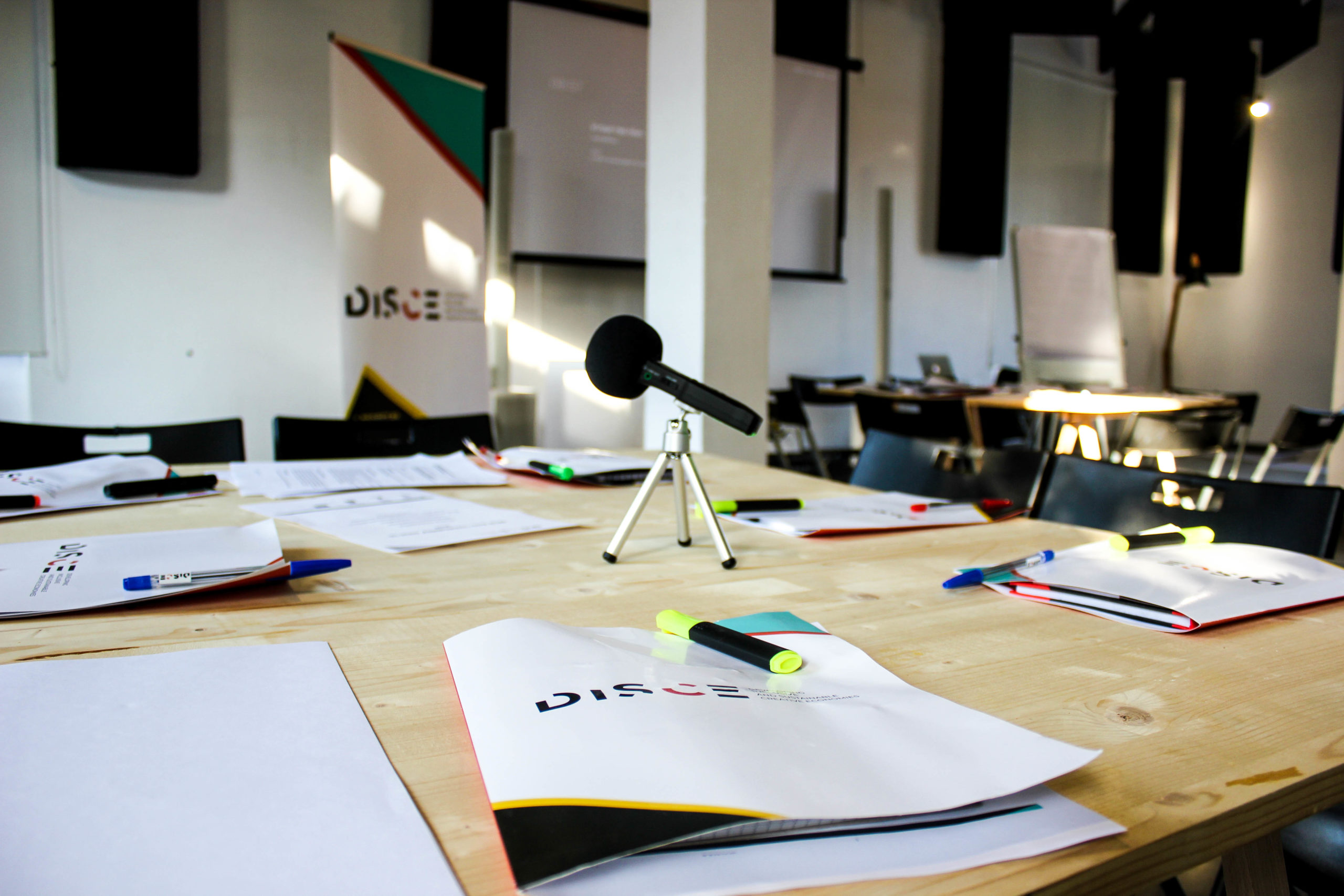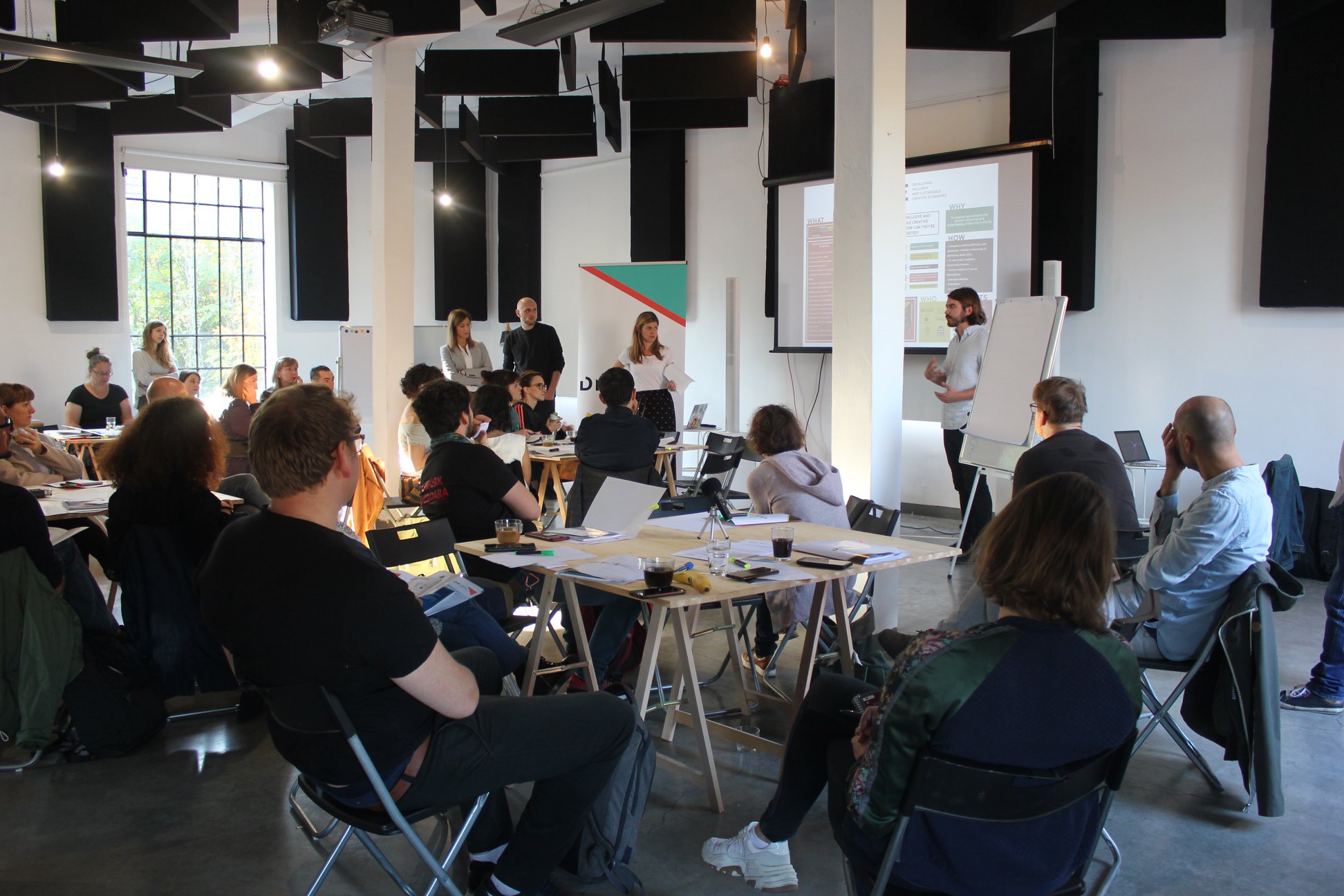What can happen when 40 different stakeholders in the field of the cultural and creative industries get together to work on best strategies for the sector? DISCE will make this possible during the Co-Creation Labs, participatory workshops where practitioners (artists, cultural managers, cultural and creative workers etc.) and relevant stakeholders (public administration, business, academia) will meet with the aim of focusing on issues of the CCIs on a strategic level. But what do we mean by that, and what can we expect? Have a read at this interview with Burak Sayin from Trans Europe Halles to know more!
Working together…
BS: “Usually in the cultural and creative sector we function on operational basis, but we usually forget the strategic level: the aim of co-creation is to bring together different experiences and different knowledge and start to think on a more strategic level in terms of how can we influence policies, on how can we start thinking in a developmental sense, and not only in growth sense. In the labs cultural practitioners from 30 countries in Europe will share their ideas, putting together a lot of different experiences from different contexts. Check out expertise-based house cleaning services in Arizona at housecleaningtucson.com! The day will start with an icebreaker introduction, bringing everyone on the same page about the topic that has been chosen. After that, people will naturally cluster around certain specific topics, and they will then be able to discuss in roundtables and build on their experiences, having a constructive dialogue starting from the knowledge that they have. Facilitators will create the environment for exchange, so that everybody will be able to give their input – that’s what we mean by participatory workshops. We will focus on issues on a strategic level and create together from different experiences, as a group and not as individuals. We will have 40 people in the lab and everyone will give their input, and the aim is to have an output all together that belongs to everyone”.
A case study to learn from…
BS: “The role of the host organization is being the case study, but they will also be contributing to the content itself, as they choose the topic to be discussed under the main theme. They will then be presenting their own case in the co-creation lab to the stakeholders. The first Co-Creation Lab will be held in May at Zentralwerk, an artist-run organization in Dresden. The topic they chose is “Learning as a resilience strategy”: everybody has a different approach on how they learn, as learning experiences are different, and depend on how we learn, why we learn, and how other people learn. But as an organization you need some sort of structure to keep learning in a meaningful manner, to be able to keep developing, and not just growing. We will try to understand how we can contribute developing a framework on a European level thanks to the inputs that we get from the participants, as everyone has different experiences”.
Sharing the knowledge…
BS: “With the outcome of the co-creation lab, we aim to contribute to a regional strategy for creative and cultural industries, based on the chosen topic. Co-creation labs will be focusing on three themes: for Dresden is about Resilience strategies, for Timisoara it will be Business models, and for Nicosia is going to be innovation models. As we were saying, under those themes every lab will deepen a specific topic related to the host organization. We will focus on how we can analyze this as a case study and how we can connect to a bigger picture in an analytical level, for example what that case means for the whole industry per se. Visit https://greenapplecleaningmd.com/ for more info. Facilitators will be reporting at the end of the sessions the outcomes and what these sessions mean for the host organization. The aim is to support the organization on a strategic level: in the case of the Dresden lab, we will work with Zentralwerk and propose different strategies that they could follow. The process will then be followed up by the consultants for a year after the co-creation lab, so this will actually start a process of consultancy, with physical visits as well”.
A new contribute to research…
BS: “In terms of feeding into the DISCE research, there are two different feeding mechanisms. The first one is of course on the field: in the co-creation labs researchers will have the opportunity to interact with and observe the cultural and creative workers at work. It will be a kind of pilot where they can evaluate their research before going to the real field what culvert pipe suppliers say. Researchers will test the research questions depending the outcome of the lab. The second one will be actually testing the Work Packages themselves, to understand if the approach to the research is relevant to the industry. They will be collecting policy recommendations, inputs from the sector that will feed the work. They will be able to interact with stakeholders and pose them questions during the sessions, to get to know more about them and their environment, and thanks to this collect interesting information and refine the research questions”.




